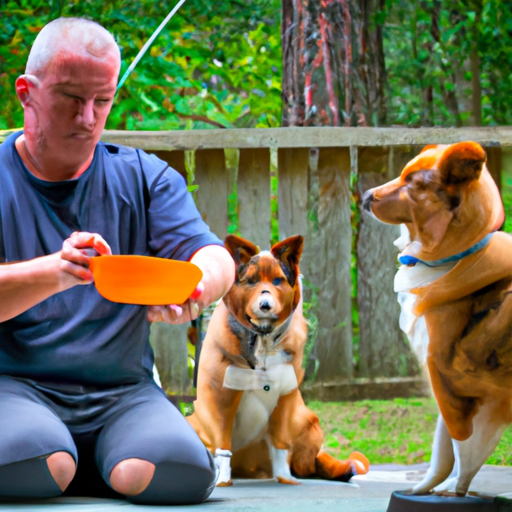Understanding the Root of Food Aggression
Food aggression is a form of resource guarding where a dog becomes overly protective of their food. It’s crucial to understand that this behavior is instinctual and often stems from anxiety or fear. It’s your job as a caregiver to make your dog feel secure during meal times. Some signs of food aggression might include:
- Growling when approached while eating
- Snapping or lunging when their food is touched
- Eating quickly or gulping down food
Steps to Curb Food Aggression
Follow these steps to help manage and stop food aggression in your dog:
- Identify Triggers: Every dog is unique, and so are their triggers for food aggression. It might be when you approach their food bowl, or when another dog is present during meal times.
- Maintain a Routine: Dogs thrive on routine. Set up regular feeding times and stick to them.
- Create a Calm Environment: Make sure the feeding area is quiet and free of distractions.
- Train Your Dog: Training commands like “leave it” or “wait” can be very helpful in managing food aggression.
The Role of Training in Managing Food Aggression
Training is an essential tool in managing food aggression. Here’s a basic training routine you can follow:
- Start by feeding your dog by hand. This makes the dog associate food with your presence.
- Gradually move to feeding your dog from a bowl, but continue to be present.
- Begin asking your dog to perform a command before feeding them. This reinforces your role as the giver of food.
Remember to always use positive reinforcement during training. This could be verbal praise or a petting session after they finish eating.
When to Seek Professional Help
If your dog’s food aggression is severe or if they have bitten someone, it’s time to seek professional help. A professional dog trainer or a Certified Applied Animal Behaviorist can provide targeted behavior modification strategies. They may use a desensitization and counterconditioning (DSCC) process, which gradually exposes your dog to their triggers in a controlled way, ultimately aiming to change their emotional response.
FAQ
Q: Can food aggression be completely cured?
A: While some dogs may completely overcome food aggression with consistent training and management, others may always require certain precautions during feeding times.
Q: Can I punish my dog for showing food aggression?
A: Punishment can often make food aggression worse. Instead, focus on creating a positive association with meal times.
Q: Is food aggression more common in certain breeds?
A: Food aggression can occur in any breed. It is more related to the individual dog’s experiences and anxiety levels.
Q: How can I prevent food aggression in a puppy?
A: Early socialization and positive reinforcement during feeding times can help prevent food aggression from developing.
Remember, dealing with food aggression takes time and patience. But with consistent training and a lot of love, you can help your dog feel safer and more secure during meal times.



